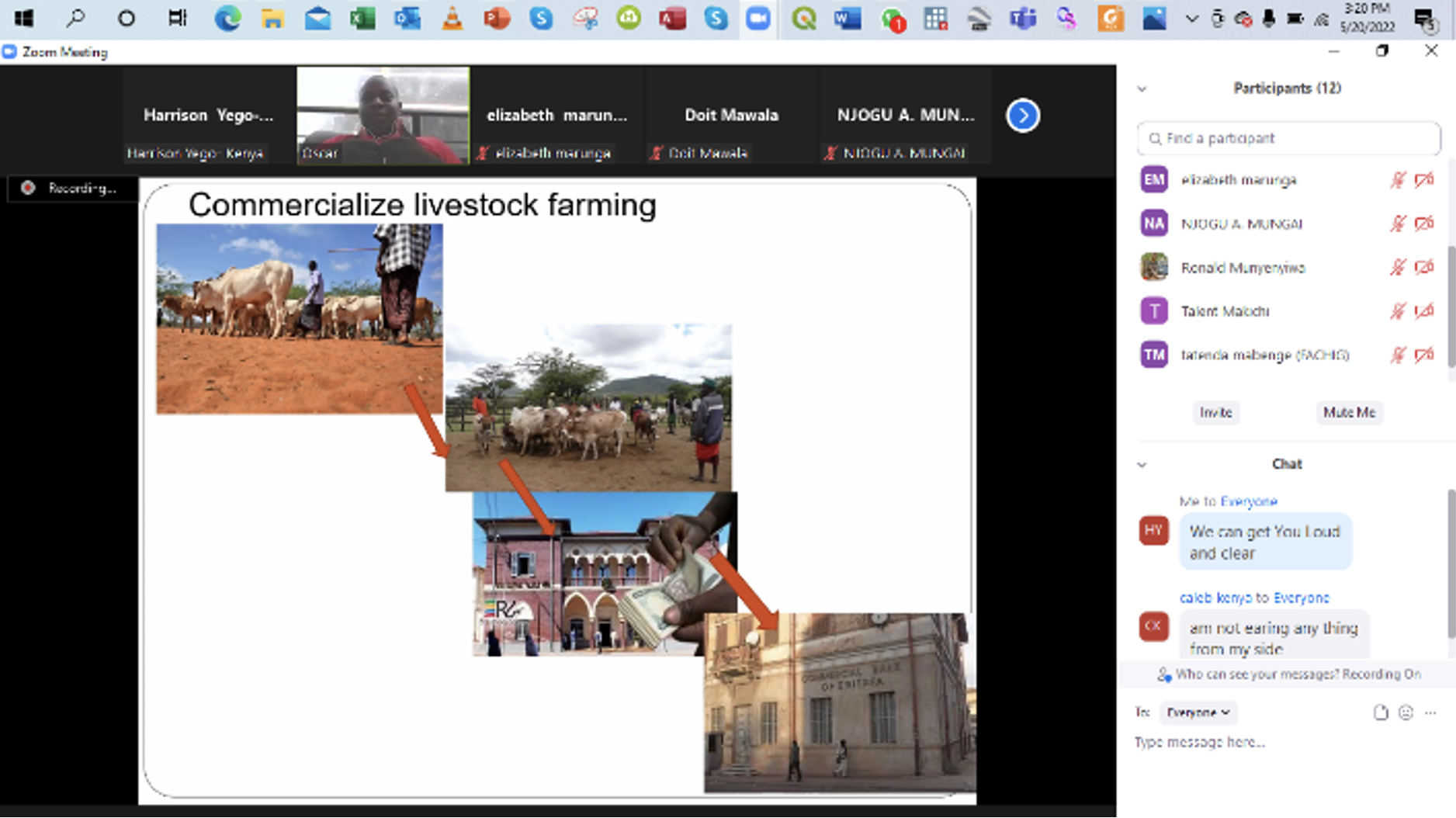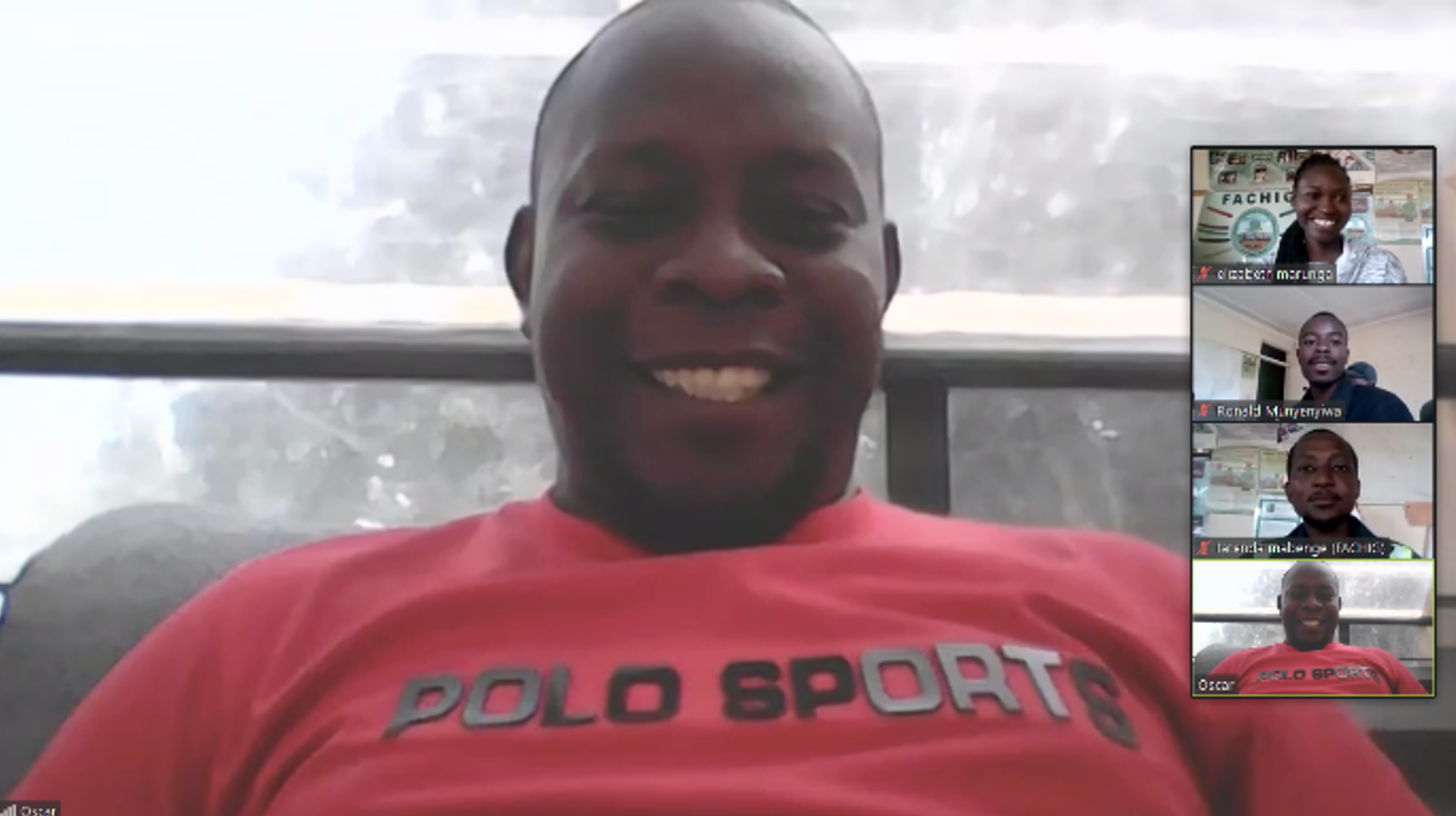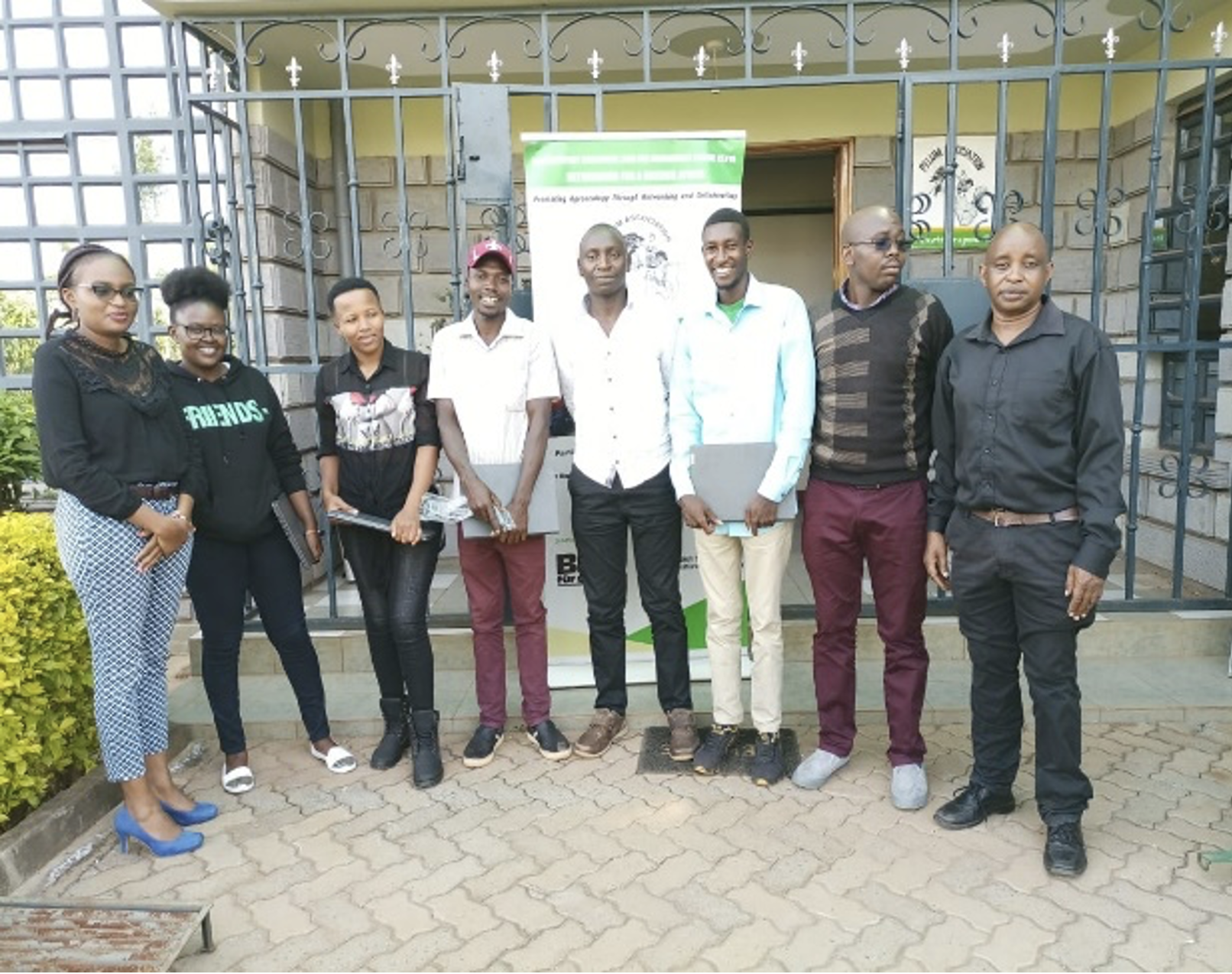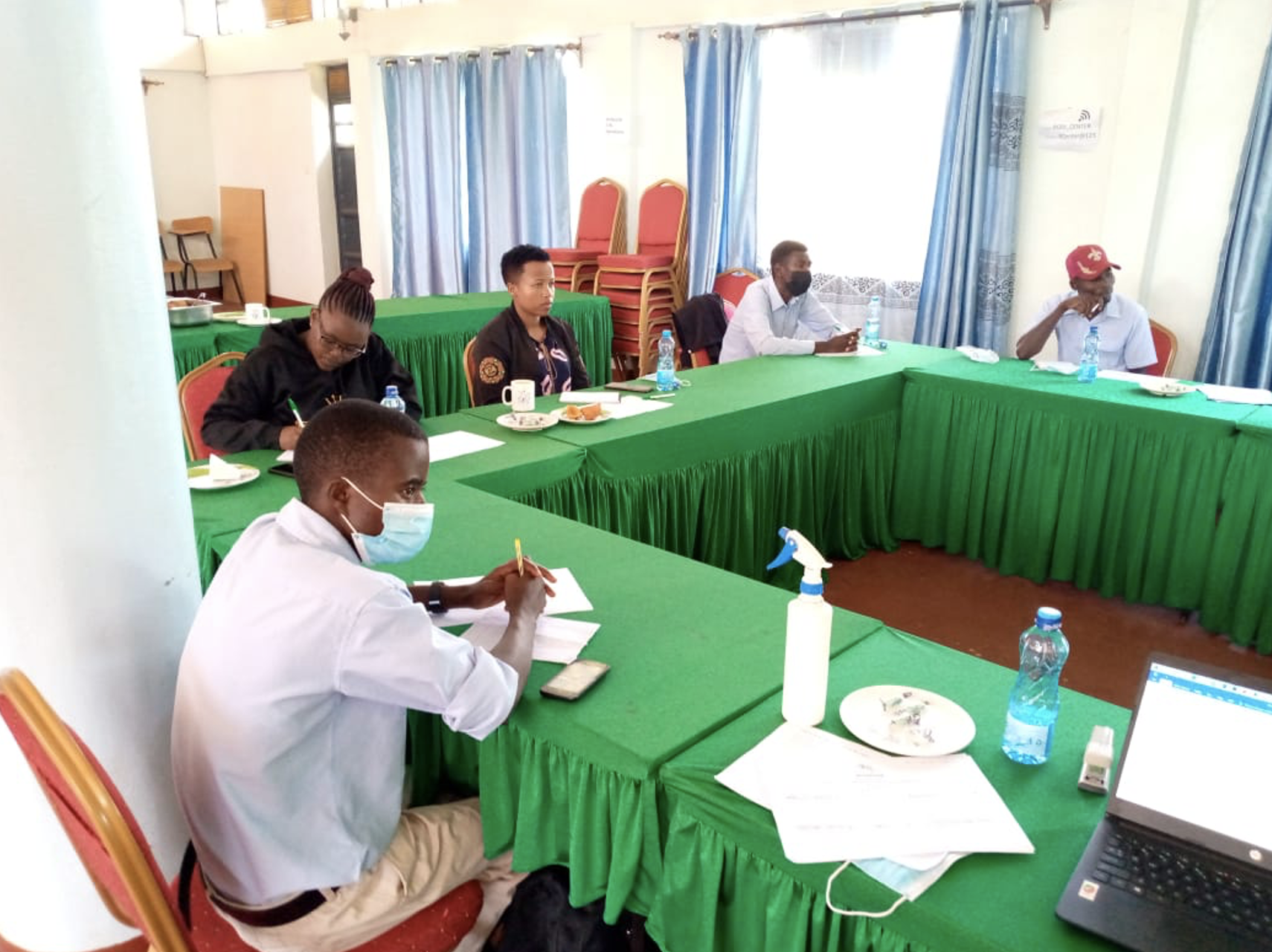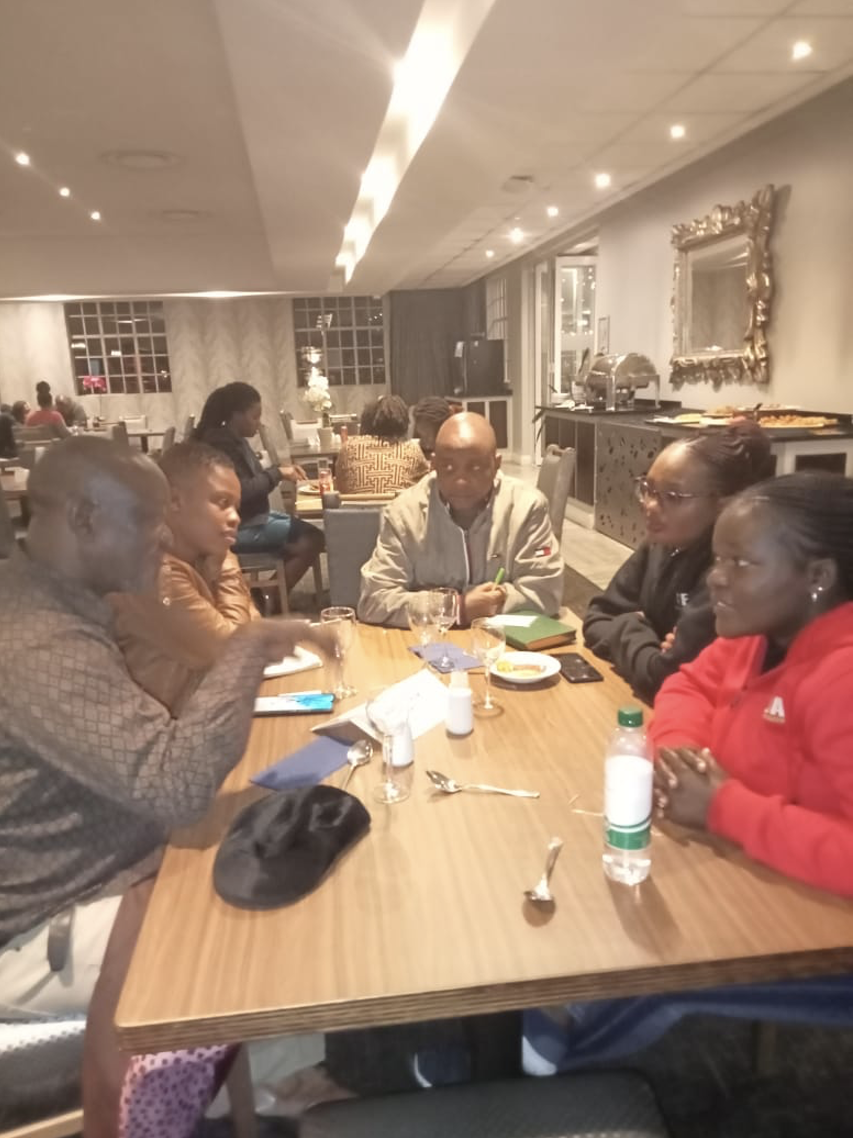 Promotion of Sustainable Agriculture and Marketing through Youth Involvement
Increasing youth participation in sustainable agriculture and agricultural market value chains for improved food security in Kenya and Zimbabwe.
Promotion of Sustainable Agriculture and Marketing through Youth Involvement
Increasing youth participation in sustainable agriculture and agricultural market value chains for improved food security in Kenya and Zimbabwe.

Challenges
With rapidly rising populations in Kenya and Zimbabwe, of which youth account for 67.7 percent and 75.1 percent respectively, food needs are likewise rapidly increasing, especially in rural areas. However, most of the food in these two countries is produced by smallholder farmers who are aging. These older farmers are less likely to adopt new technologies needed to sustainably increase agricultural productivity and ultimately feed the growing populations.
Thus, there is a need to engage youth populations in agriculture. However, agriculture remains unattractive to most youth and is perceived as a career of last resort, one of drudgery and low monetary returns. Information on access to markets and production factors, including land and financing, remain extremely limited, hindering meaningful and adequate engagement of youth in agriculture in both countries.
http://www.fao.org/sustainable-development-goals/en/
Towards a Solution
The Promoting Sustainable Agriculture and Marketing through Youth Involvement (PSAMY) project, supported by the Norwegian Agency for Exchange Cooperation (Norec), employs knowledge sharing between Kenyan and Zimbabwean youth to increase youth participation in sustainable agriculture and agricultural value chains and marketing. The project is anchored within SDG 1 (ending poverty), SDG 2 (zero hunger) and SDG 8 (productive employment and decent work for all). As with all NOREC exchange projects, this also targets SDG 17 (strengthened partnerships for the goals).
The project started during the COVID-19 pandemic which affected physical exchanges, hence necessitating participants from both Kenya and Zimbabwe to use digital technology to exchange knowledge on sustainable agriculture and marketing. PELUM Kenya, a civil society organization, under the regional PELUM umbrella which has membership in 12 countries in East, Central and Southern Africa, shares their expertise in sustainable agriculture practices, including soil health, agroforestry, pasture management, integrated pest management, water conservation, seed saving, and more. In turn, participants from Zimbabwe recruited by FACHIG, a civil society organization, share their expertise on agricultural produce value addition, entrepreneurial strategies, marketing and marketing dynamics, financial management, existing opportunities in agricultural value chains and sales. All the youth participants are trained in leadership and partnership building.
Project participants are recruited from local agricultural colleges, and are poised to pursue careers in the agricultural sector. They receive targeted training related to sustainable agricultural practices and value-added chains relevant to small-scale farm holders. The project participants in turn train established small-scale farmers on these “modern” approaches to help them adopt more sustainable, productive and profitable practices.
The process of creating this South-South knowledge exchange involved inputs from the two organizations at the highest-level which allowed for ownership of ideas in the project document and will support the sustainability of the proposed actions. FACHIG and PELUM Kenya developed a joint proposal clarifying the roles of each partner and expectations and agreeing on modalities for working and communicating. The partners then developed a training schedule for participants in both countries.
The PSAMY project strengthens participants’ skills in disseminating knowledge to farmer groups on sustainable agriculture, value chain and marketing and formation of market associations. Adopting sustainable farming practices and improving the ability to market produce can improve farm incomes. The implementing institutions are increasing their institutional knowledge on sustainable agriculture practices and innovations and market association and value chain development. The partnering of the institutions in the two countries led to increased networking and collaboration.
Resorting to digital technology for the exchanges due to the pandemic showed that knowledge and experience can indeed be shared through digital platforms and communication channels, even for training of trainers.
To promote sustainability, participants are transferring the knowledge and skills gained to their member organizations, farmer groups and other youths. The participants in the programme are also training other staff members and lead farmers to create a broader institutional memory. To further ensure sustainability, the digital platform will remain active after the end of the project to allow people to access the step-by-step project, including through online videos and recorded training sessions.
The youth in the project communities habour misconceptions about the opportunities available in agriculture. When presented with the chance to learn and contribute to agricultural development in their communities, the response from the young participants has been very positive. A lesson learned by the project partners is to consider alternative methods of operating in times of disaster to ensure continuity of collaborations. This project is highly replicable in any part of the world where agriculture is a mainstay of the economy and opportunities to connect digitally are present.
Contact Information
Countries involved
Supported by
Implementing Entities
Project Status
Project Period
URL of the practice
Primary SDG
Primary SDG Targets
Secondary SDGs
Secondary SDG Targets
Similar Solutions
| NAME OF SOLUTION | Countries | SDG | Project Status | |
|---|---|---|---|---|
A Billion Brains: Smarter Children, Healthier Economies High Level Meeting on South-South Cooperation for Child Rights |
Kenya, Zimbabwe | 17 - Partnerships for the Goals | Completed | View Details |
Accelerating the Transformational Shift to a Low-Carbon Economy in Mauritius Towards supplying 35 percent of the country’s energy needs with renewables by 2025 |
Kenya, Zimbabwe | 05 - Gender Equality 09 - Industry, Innovation and Infrastructure 13 - Climate Action | Ongoing | View Details |
Accelerator Labs Network Following collective intelligence methods to address emerging sustainability challenges and the growing demand for local solutions |
Kenya, Zimbabwe | 08 - Decent Work and Economic Growth 13 - Climate Action | Ongoing | View Details |
Accessible Digital Textbooks Promoting inclusive education through Accessible Digital Textbooks |
Kenya, Zimbabwe | 10 - Reduced Inequalities | Completed | View Details |
ACP Business-friendly Supporting business-friendly and inclusive national and regional policies, and strengthening productive capabilities and value chains |
Kenya, Zimbabwe | 08 - Decent Work and Economic Growth 17 - Partnerships for the Goals | Ongoing | View Details |
